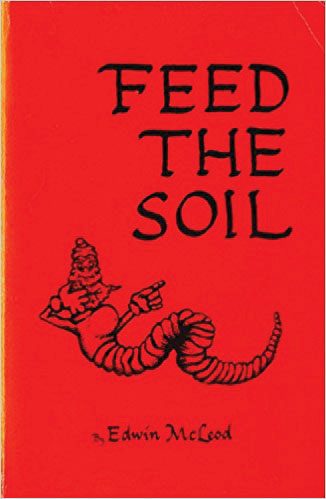Book Review: Feed the Soil
In his excellent and comprehensive book, Feed the Soil (Organic Agriculture Research Institute, 1982 —don't let the date put you off, the information is still completely valid today), Edwin McLeod teaches you how to improve soil fertility through natural methods, and describes a number of crops, including legumes, that can do reasonably well in droughty areas, fixing nitrogen the the soil through a symbiotic relationship with soil microbes. The book advocates the "green manure" method of tilling the plants under after they mature to build soil, but with GROW BIOINTENSIVE, these legumes are rendered even more efficient, because they are cut when they begin to flower, so the nitrogen fixed in the root nodules is kept in the soil, and not used by the plant to create seeds, and the biomass of the cuttings can be used to make compost. Some excellent nitrogen-fixing varieties for limited water situations are listed in the book by climate category: Many Climates, Cool Climate, Cool and Dry Climate, Hot Climate, and Hot and Dry Climate. I found the Jack Bean (Canavalia ensivorma) pp.113-114 and the Moth Bean (Phaseolus aconitifolius) pp. 146-147 of particular interest, and the detailed descriptions of all the crops are comprehensive and help the reader gain a good understanding of the nature of each crop and conditions under which they grow. Good reading for gardening on a hot planet! ♥
top | Newsletter Home |Table of Contents| Archive
|


 Kenya is in an ongoing drought, causing food
prices to skyrocket; 20% of Spain is desertified,
and 75% is considered dry or semi-arid and at
high risk for desertification (
Kenya is in an ongoing drought, causing food
prices to skyrocket; 20% of Spain is desertified,
and 75% is considered dry or semi-arid and at
high risk for desertification (